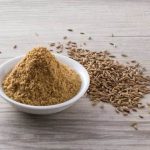Aromatherapy is a holistic healing treatment that uses natural plant extracts to promote health and well-being. Originating from ancient civilizations, aromatherapy has been practiced for centuries to enhance both physical and psychological health. The question arises: what are the advantages of aromatherapy?
The practice of aromatherapy involves using essential oils extracted from plants to improve mood, cognitive function, and overall health. These oils can be inhaled or applied topically, allowing their aromatic molecules to stimulate the olfactory system and activate various areas of the brain. Aromatherapy is rooted in the belief that each essential oil possesses unique therapeutic properties that can positively impact the body and mind.
By understanding the science behind aromatherapy, individuals can harness its benefits to alleviate stress, improve sleep quality, boost immunity, and manage certain physical ailments. As we delve into the different types of essential oils used in aromatherapy and explore their psychological and physical health benefits, it becomes evident how this ancient practice can play a significant role in enhancing overall well-being.
Understanding the Science Behind Aromatherapy
Aromatherapy is a holistic healing treatment that uses natural plant extracts, known as essential oils, to promote physical, emotional, and mental well-being. The practice of aromatherapy can be traced back thousands of years to ancient civilizations like the Egyptians, Greeks, and Romans. These cultures recognized the therapeutic benefits of using aromatic plants for healing purposes. Today, aromatherapy continues to be widely practiced around the world for its countless advantages.
How Does Aromatherapy Work?
Essential oils are extracted from various parts of plants such as flowers, leaves, stems, bark, and roots through processes like steam distillation or cold pressing. These highly concentrated oils contain active compounds that interact with the body in different ways when inhaled or applied to the skin.
When essential oils are inhaled through diffusion or added to carrier oils for massage, their molecules enter the bloodstream and stimulate the limbic system in the brain which controls emotions and memories. This process triggers a cascade of physiological responses that can impact mood, stress levels, pain perception, and more.
The Benefits of Aromatherapy on a Cellular Level
Studies have shown that certain essential oils possess antimicrobial properties which can help fight off harmful pathogens when used topically or diffused in the air. Additionally, some essential oils have antioxidant properties that protect cells from damage caused by free radicals.
Research has also suggested that inhaling certain essential oil compounds can modulate gene expression related to inflammation and immune responses. These findings shed light on how aromatherapy works not just on a psychological level but also at a cellular level to support overall health and well-being.
Exploring Different Types of Essential Oils Used in Aromatherapy
Aromatherapy utilizes a wide range of essential oils that are derived from various plants, flowers, herbs, and other natural sources. Each essential oil has its unique properties and benefits, making them suitable for addressing different health and well-being concerns. Some popular essential oils used in aromatherapy include lavender, tea tree, peppermint, eucalyptus, and chamomile. These oils can be used individually or blended together to create customized aromatherapy blends tailored to specific needs.
Lavender essential oil is one of the most versatile and widely used essential oils in aromatherapy. Known for its calming and relaxing properties, lavender oil is often used to promote relaxation, reduce stress and anxiety, improve sleep quality, and alleviate headaches. Tea tree oil is another popular essential oil that is valued for its antibacterial and antifungal properties. It is commonly used in aromatherapy to boost the immune system, treat skin conditions like acne and eczema, and purify the air.
Peppermint essential oil is known for its invigorating aroma and cooling sensation. It can help alleviate nausea, headaches, sinus congestion, muscle aches, and mental fatigue. Eucalyptus oil is often chosen for its respiratory benefits due to its decongestant properties. It can be effective in relieving cold and flu symptoms, coughs, sinusitis, and allergies.
Chamomile essential oil is prized for its calming effects on the mind and body. It can help reduce inflammation, soothe digestive issues, promote relaxation, and improve sleep quality. These are just a few examples of the vast array of essential oils available for use in aromatherapy.
The Psychological Benefits of Aromatherapy
Aromatherapy is not only known for its pleasant fragrances but also for the psychological benefits it offers. The use of essential oils in aromatherapy has been shown to positively impact emotions, mood, and overall mental well-being. Many people turn to aromatherapy as a natural way to alleviate stress, boost energy levels, and improve focus and concentration.
Emotional Balance and Mood Enhancement
One of the main advantages of aromatherapy is its ability to promote emotional balance and enhance mood. Essential oils like lavender, chamomile, and bergamot are commonly used in aromatherapy to help reduce feelings of anxiety, depression, and tension. The aroma of these oils can trigger the brain to release neurotransmitters like serotonin and dopamine, which are known as “feel-good” chemicals that promote relaxation and upliftment.
Stress Reduction and Relaxation
Aromatherapy is often used as a stress-relieving tool in today’s fast-paced world. The calming scents of essential oils such as clary sage, rosewood, and ylang-ylang can help soothe the mind and body, reducing feelings of anxiety and promoting relaxation. Whether through inhalation or topical application, the use of these oils can create a sense of tranquility and peace, allowing individuals to unwind after a long day or during times of heightened stress.
Cognitive Function Improvement
Another advantage of aromatherapy is its potential to improve cognitive function. Certain essential oils like peppermint, rosemary, and lemon have stimulating properties that can enhance mental clarity, concentration, and memory retention. Using these oils in diffusers or as part of a massage blend can support cognitive performance by invigorating the senses and sharpening focus. Aromatherapy can be particularly beneficial for students studying for exams or professionals needing a mental boost during work hours.
Physical Health Benefits of Aromatherapy
Aromatherapy is not only beneficial for enhancing psychological wellness but also for improving physical health. By utilizing essential oils extracted from plants, aromatherapy can address various ailments and promote overall well-being. Here are some of the physical health benefits of incorporating aromatherapy into your daily routine:
- Relief from headaches and migraines: Certain essential oils such as peppermint, lavender, and eucalyptus have been known to alleviate symptoms of headaches and migraines when applied through inhalation or topical application.
- Boosting immune system function: Essential oils like tea tree, lemon, and oregano possess antimicrobial properties that can help fight off infections and strengthen the body’s natural defense mechanisms.
- Improved digestion: Aromatherapy using oils like ginger, peppermint, and chamomile can aid in soothing digestive issues such as bloating, indigestion, and nausea.
In addition to these specific benefits, the overall relaxation and stress-reducing effects of aromatherapy can contribute to a healthier body. When the mind is at ease, it can positively impact physical health by reducing inflammation, lowering blood pressure levels, and promoting better sleep patterns. The holistic approach of aromatherapy addresses the interconnectedness of mind, body, and spirit in achieving optimal wellness.
With its ability to target both mental and physical aspects of health, aromatherapy serves as a versatile complementary therapy that can be integrated into various wellness routines. Whether used through diffusers at home, applied topically during massages or baths, or incorporated into yoga practices or meditation sessions, the benefits of aromatherapy are extensive.
It is important to consider individual sensitivities or allergies when choosing essential oils for personal use to ensure a safe and effective experience. Embracing the advantages of aromatherapy in promoting physical health is a natural way to support overall well-being.
How Aromatherapy Can Improve Sleep and Relaxation
Aromatherapy has long been used as a natural remedy to improve sleep quality and promote relaxation. The use of essential oils in aromatherapy can have a profound impact on the body and mind, helping individuals unwind after a long day and achieve a restful night’s sleep. Here are some ways in which aromatherapy can enhance sleep and relaxation:
- Lavender essential oil is known for its calming properties and is commonly used to aid in relaxation and promote better quality sleep. Its soothing aroma can help reduce anxiety and stress, making it easier to unwind before bedtime.
- Chamomile essential oil is another popular choice for promoting relaxation and improving sleep. Its gentle fragrance can help calm the mind and body, making it an excellent option for those struggling with insomnia or restless nights.
- Bergamot essential oil is often used to elevate mood and reduce feelings of stress, which can be beneficial for those looking to relax and unwind before bedtime. Its citrusy scent is uplifting yet soothing, creating a peaceful atmosphere ideal for promoting restful sleep.
Incorporating aromatherapy into your nightly routine can create a serene environment conducive to better sleep hygiene. Whether through diffusing essential oils, using them in a relaxing bath, or adding them to a massage oil, the calming effects of aromatherapy can help you achieve a deeper state of relaxation and more restorative sleep.
Aromatherapy for Stress Relief and Anxiety Management
Aromatherapy has been long recognized for its calming and stress-relieving properties, making it a popular choice for individuals seeking natural ways to manage anxiety. The use of essential oils in aromatherapy can help create a sense of relaxation and tranquility, promoting emotional well-being. One of the key advantages of aromatherapy for stress relief is its ability to stimulate the limbic system, which is the part of the brain that plays a role in emotions and memories.
Certain essential oils such as lavender, chamomile, and bergamot are known for their relaxing properties and are commonly used in aromatherapy practices aimed at reducing stress and anxiety. The soothing aroma of these oils can help calm the mind, alleviate tension, and improve overall mood. Incorporating aromatherapy into daily routines, such as through diffusers or inhalers, can provide ongoing support in managing stress levels effectively.
In addition to its psychological benefits, aromatherapy for stress relief also offers physical advantages. Research has shown that certain essential oils have anti-inflammatory and analgesic properties that can help reduce physical symptoms associated with stress, such as muscle tension or headaches. By combining both the psychological and physical benefits of aromatherapy, individuals can experience a holistic approach to stress management that supports their overall well-being.
| Aromatherapy Benefit | Description |
|---|---|
| Emotional Well-being | Aromatherapy promotes relaxation and tranquility, aiding in managing anxiety. |
| Physical Relief | Essential oils have anti-inflammatory properties that can reduce physical symptoms of stress. |
Incorporating Aromatherapy Into Daily Wellness Routines
Aromatherapy is not only a relaxing and therapeutic practice but also a great way to incorporate natural remedies into your daily wellness routines. By understanding the benefits of aromatherapy and how different essential oils can be used, you can easily integrate this practice into your life for overall well-being.
One of the advantages of aromatherapy is its versatility – there are numerous ways to use essential oils in your daily routine, from diffusing them in a room to applying them topically or even adding them to bath water.
Incorporating aromatherapy into your daily wellness routines can have a positive impact on both your physical and mental health. For example, using lavender essential oil before bedtime can promote relaxation and improve sleep quality. Peppermint oil, on the other hand, is known for its uplifting properties and can help boost energy levels during the day. By choosing the right essential oils for your needs, you can address different aspects of your well-being throughout the day.
Moreover, incorporating aromatherapy into your daily routine is an effective way to manage stress and anxiety. The calming scents of certain essential oils such as chamomile or bergamot can help reduce feelings of stress and promote a sense of peace and tranquility. Whether through inhaling the aroma or applying diluted oils topically, utilizing aromatherapy techniques in your daily wellness rituals can provide a holistic approach to self-care.
| Advantages of Aromatherapy | Benefit Description |
|---|---|
| Versatility | Aromatherapy offers various ways to use essential oils in daily routines. |
| Improved Well-being | The practice has physical and mental health benefits that enhance overall well-being. |
| Stress Relief | Aromatherapy helps manage stress and anxiety through calming scents. |
Side Effects and Precautions to Consider When Using Aromatherapy
Aromatherapy has gained popularity in recent years due to its numerous benefits for both physical and mental well-being. While it is generally safe when used correctly, there are some important precautions to consider when incorporating aromatherapy into your daily routine.
One key consideration when using essential oils for aromatherapy is to ensure that you are using high-quality, pure oils from reputable sources. Some essential oils on the market may be diluted or contain synthetic additives, which can reduce their effectiveness and potentially cause adverse reactions. It is essential to do thorough research and purchase oils from trusted suppliers to maximize the benefits of aromatherapy.
Another precaution to keep in mind when using aromatherapy is the potential for skin irritation or allergic reactions. Before applying any essential oil to your skin, it is recommended to perform a patch test on a small area first to check for any sensitivity. Additionally, certain essential oils are phototoxic and can cause skin damage if exposed to sunlight after application. Always follow dilution guidelines and use caution when applying oils topically.
Furthermore, pregnant women, individuals with specific medical conditions such as asthma or epilepsy, or those taking certain medications should consult with a healthcare professional before using aromatherapy. Some essential oils may interact with medications or exacerbate certain health conditions, so it is crucial to seek guidance from a qualified expert before incorporating aromatherapy into your wellness routine. By taking these precautions into account, you can safely enjoy the many advantages of aromatherapy while minimizing any potential risks.
Conclusion
In conclusion, aromatherapy offers a wide range of benefits that can significantly improve an individual’s overall well-being. From its origins in ancient civilizations to its modern-day applications, aromatherapy has been recognized for its therapeutic effects on both the mind and body. The science behind aromatherapy lies in the powerful properties of essential oils, which have been shown to positively impact mood, emotions, and physical health.
One of the key advantages of aromatherapy is its ability to provide psychological benefits by reducing stress, anxiety, and promoting relaxation. Different types of essential oils can evoke distinct emotional responses, making aromatherapy a versatile tool for managing mental health concerns. Additionally, the physical health benefits of aromatherapy cannot be overlooked, as certain essential oils possess antiseptic, anti-inflammatory, and analgesic properties that can aid in alleviating various ailments.
Moreover, incorporating aromatherapy into daily wellness routines can be a simple yet effective way to enhance one’s quality of life. Whether used for improving sleep quality or relieving tension after a long day, aromatherapy offers a natural and holistic approach to self-care.
It is important to note that while aromatherapy is generally safe for most individuals, it is crucial to consider any potential side effects or precautions before using essential oils. Overall, the advantages of aromatherapy are vast and diverse, making it a valuable practice for promoting overall well-being.
Frequently Asked Questions
Does Aromatherapy Really Help?
Aromatherapy has been known to help improve certain conditions such as stress, anxiety, insomnia, and headaches for some individuals. While the scientific evidence on its effectiveness is mixed, many people find it to be a beneficial complementary therapy for relaxation and overall well-being.
What Are the Mental Benefits of Aromatherapy?
The mental benefits of aromatherapy include stress relief, improved mood, increased relaxation, enhanced focus, and reduced anxiety levels. Certain essential oils can have calming or invigorating effects on the mind, helping to promote mental clarity and emotional balance.
Are There Any Benefits to Inhaling Essential Oils?
Inhaling essential oils can offer various benefits such as calming the mind, reducing stress and anxiety, improving focus and concentration, enhancing mood, and even boosting energy levels. The inhalation of these oils can stimulate the limbic system in the brain which plays a role in emotions and memories.

Are you looking for a natural way to improve your health and wellbeing?
If so, aromatherapy may be the answer for you.



